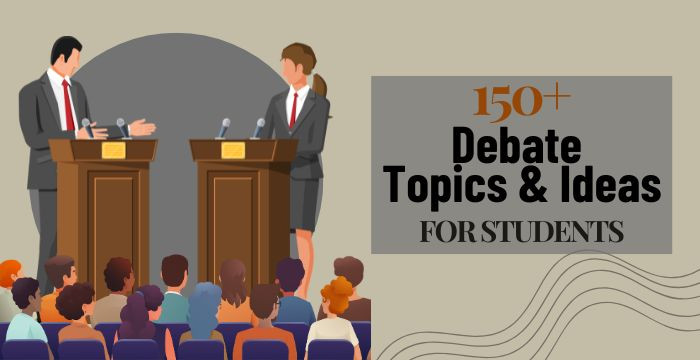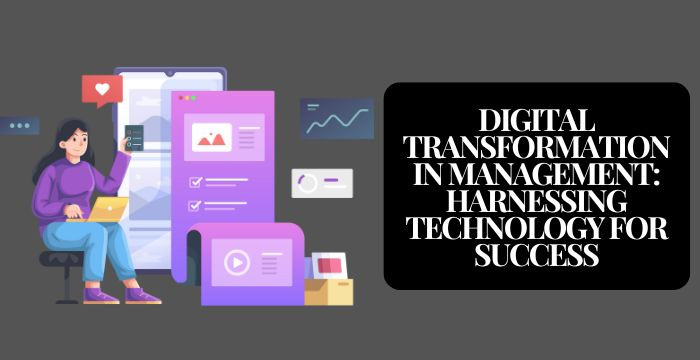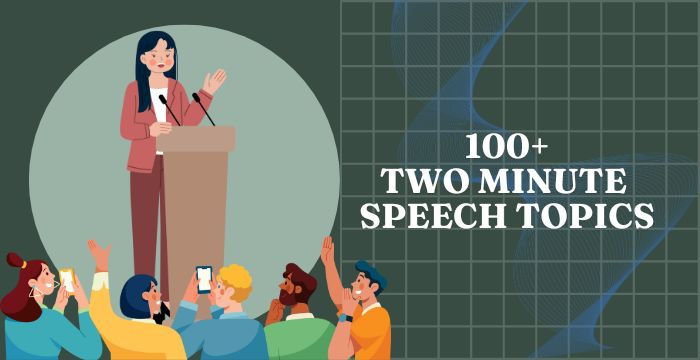
Debate competitions are the most thrilling events in schools and colleges. It allows students to express their opinions, challenge ideas, and engage in an intellectual environment. Besides, it allows the students to develop critical thinking, public speaking, and research skills. So, if you have decided to participate in a debate competition, be prepared for an exciting, dramatic, and memorable experience.
Now, the next step after registering yourself for a debate competition is selecting an intriguing topic. In this blog, we have compiled a list of 150+ debate topics and ideas under 10+ categories; but before we begin, let’s look at the factors you should consider while choosing a topic.
What to consider before selecting a topic for debate?
- Relevance: Choose current topics that have relevance in today's context. This will capture the interest of both the debaters and the audience.
- Balance: Make sure that your topic offers a fair and balanced platform for both sides to present their arguments. This keeps up the engagement factor.
- Depth and complexity: Finally, your topic should allow for in-depth analysis and critical thinking. Topics that are too broad or simplistic may limit the scope of the debate.
List of topics for debates:
It’s the time to dive into the world of stimulating and thought-provoking topics for debates. Take your time to read the entire list and shortlist the topics that capture your interest and arouse curiosity. Then research the shortlisted topics keeping in mind the above factors. It will help you arrive at a great subject of discussion that appeals to you as well as the audience.
1. Current Affairs:
- Climate change: Is it a global crisis or a natural cycle?
- Universal basic income: Pros and cons for society.
- Immigration policies: Balancing national security and humanitarian concerns.
- Internet privacy: Should governments have access to citizens' online activities?
- Gender pay gap: Is it a result of discrimination or other factors?
- Social media regulation: Should there be stricter rules to combat online harassment?
- Nuclear energy: Is it a viable solution for a sustainable future?
- Combating fake news in the digital age: Is it a challenge of security or interference
- Gun control: Balancing individual rights with public safety.
- Genetic engineering: Ethical considerations and potential benefits.
- Capital punishment: Is it a justifiable form of punishment?
- Universal healthcare: Pros and cons of a government-run healthcare system.
2. Economics and Business:
- Addressing the wealth gap in the society: Common solutions and their challenges
- The gig economy: Is it a boon or a bane for workers?
- Cryptocurrencies: The future of finance or a risky investment?
- Trade wars: Are they beneficial or detrimental to global economies?
- Ethical consumerism: Can individual choices make a difference?
- Corporate social responsibility: Should businesses prioritize social and environmental concerns?
- Does automation mean job displacement?
- Wealth tax: Is it a fair solution to redistribute resources?
- Globalization: Does it improve or harm local economies?
- Minimum wage: Balancing the needs of workers and businesses.
- Economic impact of climate change: Mitigation vs. adaptation.
- Intellectual property rights: Striking a balance between innovation and accessibility.
3. Films and Social Media:
- Censorship in the film industry: Striking a balance between artistic freedom and societal norms.
- Impact of social media on mental health: Are platforms doing enough to address this issue?
- Representation in media: Is the need for diversity and inclusion being fulfilled?
- The influence of influencers: Is their impact positive or negative?
- Copyright infringement: Navigating the line between inspiration and plagiarism.
- Violence in movies: Should there be stricter regulations?
- Social media and democracy: The role of platforms in shaping political discourse.
- The impact of streaming services on traditional cinema: Is it a threat or an opportunity?
- Freedom of speech on social media: Should there be limitations?
- The portrayal of women in films: Moving beyond stereotypes.
- The role of documentaries in driving social change.
- Privacy concerns on social media: Balancing personal information and convenience.
4. Education:
- Standardized testing: Assessing its effectiveness and fairness.
- Online education: Is it a viable alternative to traditional classrooms?
- Inclusive education: Is it a reality or an illusion?
- The role of technology in education: Enhancing or hindering learning?
- School vouchers: Pros and cons of school choice.
- The importance of arts education: Nurturing creativity in schools.
- Homeschooling vs. traditional schooling: Which is more effective?
- Mental health support in schools: Are we doing enough?
- The impact of social media on students' academic performance.
- Sex education: Comprehensive vs. abstinence-only programs.
- The value of foreign language education: Preparing students for a globalized world.
5. Environment:
- Plastic pollution: Should single-use plastics be banned?
- Renewable energy: Is it a viable solution for reducing carbon emissions?
- Wildlife conservation: Balancing economic development and biodiversity preservation.
- Deforestation: Addressing the consequences and potential solutions.
- Water scarcity: Strategies for sustainable water management.
- Carbon pricing: Is it a correct move to encourage businesses to reduce their carbon footprint?
- Sustainable agriculture: Balancing food production and ecological impact.
- Overfishing: Protecting marine ecosystems and livelihoods.
- Air pollution: Do we require stricter measures for cleaner air?
- The impact of climate change on indigenous communities.
6. Art and Design:
- Cultural appropriation in art: Where should the line be drawn?
- Public funding for the arts: The importance of government support.
- Street art: Vandalism or valuable expression?
- The role of art in promoting social change.
- Traditional vs. contemporary art: Appreciating both forms.
- The commercialization of art: Balancing creativity and profitability.
- The impact of technology on the art world - boon or bane.
- Architecture and sustainability: Is it a possible combination?
- Virtual museums - Do they promote or harm our heritage
- Art censorship: Striking a balance between artistic expression and societal norms.
- Art education: Are we doing enough to nurture creativity in schools?
7. Sports:
- Pay disparity in professional sports: Gender and wage gaps.
- The use of performance-enhancing drugs in sports: Stricter regulations or acceptance?
- The impact of sports on mental health and well-being.
- Sports and nationalism: Do we need stricter rules to avoid clashes between fans or is it about upholding the spirit of watching sports?
- E-sports: Should they be considered legitimate?
- Sports diplomacy: The role of sports in international relations.
- Age restrictions in professional sports: Balancing talent and experience.
- The influence of money in sports: The pursuit of profit versus fair competition.
- Gender segregation in sports: Equality vs. biological differences.
- Is inclusivity in sports a reality or illusion?
8. Science and Technology:
- Artificial intelligence: Benefits and risks of advanced AI systems.
- Genetic editing: Ethical considerations and potential applications.
- Privacy in the digital age: Balancing data security and convenience.
- The impact of social media on interpersonal relationships.
- Human cloning: Ethical concerns and scientific possibilities.
- Cybersecurity: Protecting individuals and organizations from online threats.
- The role of technology in healthcare: Is it a boon or bane?
- The benefits and risks of nanotechnology.
- The impact of technology on mental health.
- Quantum computing: Unlocking new frontiers in computing power.
9. Literature:
- The relevance of classic literature in the modern world.
- Censorship in literature: Balancing artistic freedom and societal norms.
- The impact of literature on empathy and understanding.
- The role of literature in addressing social issues.
- The influence of technology on reading habits.
- The portrayal of marginalized communities in literature.
- The importance of diverse voices in literature.
- The power of storytelling: Fiction vs. non-fiction.
- The impact of book adaptations on the original work.
- The future of publishing: Traditional vs. digital platforms.
- The significance of banned books in society.
10. Health and Wellness:
- Mental health stigma: Breaking down barriers to seeking help.
- The impact of social media on body image.
- Vaccinations: Public health vs. personal choice.
- The role of technology in promoting a healthy lifestyle.
- The impact of fast food on public health: ethical concerns vs booming market opportunities.
- Should sexual education be made compulsory in schools?
- Mental health support in workplaces: Are we doing enough?
- The benefits and risks of alternative medicine.
- The role of exercise in preventing chronic diseases: Is it effective?
- Health influencers: Should there be stricter norms for them?
11. Philosophy:
- Existence of Free Will: Is human behavior determined by external factors or do individuals have the ability to make free choices?
- Ethical concerns in Artificial Intelligence
- Morality and Relativism: Is morality subjective and relative to individual or cultural beliefs, or are there universal moral truths?
- Epistemology: Can we truly know anything, or is knowledge merely a collection of beliefs?
- Ethics of Animal Rights: Should animals have rights and legal protections similar to humans?
- The Nature of Consciousness: Can it be explained from a philosophical perspective?
- The Meaning of Life: Can the purpose or meaning of life be objectively determined?
- The Nature of Reality: What is the true nature of reality, and can it be known or understood?
The topics listed above span a wide range of categories, ensuring that you can explore your interests and engage in thought-provoking conversations. Remember, the key to a successful debate lies not only in presenting convincing arguments but also in fostering a respectful and open exchange of ideas. So, go ahead and explore your favorite topics from this list in detail and begin preparing for your debate. All the best!


